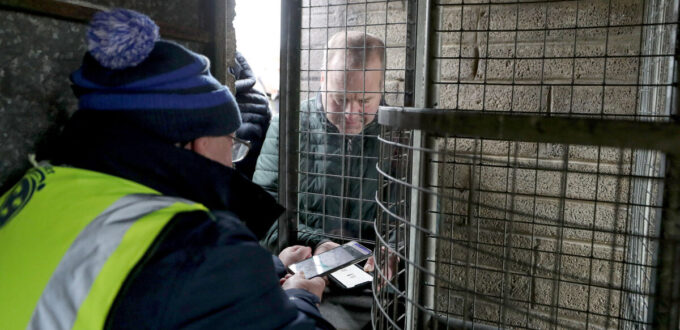Let us hope that those of us for whom “progress can pose challenges”, as GAA director general Tom Ryan elegantly described it this week, are able to purchase our Allianz Hurling League tickets without let or hindrance next time around.
Unfortunately, as we, and a number of GAA representatives warned, the full introduction of the cashless ticketing system this season, if it didn’t fall at the first hurdle, certainly staggered enough to be irritating.
The GAA has switched its arrangements by signing a five-year agreement, valued at €10m, with the US company owned by Live Nation Entertainment, headquartered in Beverly Hills, Los Angeles, California.
While it is no doubt a wonderful, brand-affirming experience to be part of the Live Nation family (40,000 shows, 100-plus festivals, 500m tickets per year) and to be jostling for attention alongside Ariana Grande and Justin Bieber, it also means local inconvenience and frustrations when global systems crash. As they did on the Ticketmaster platform on Superbowl weekend.
We shouldn’t labour the point about over-reliance on technology because outages can, and increasingly do, happen to everyone (as they did with Twitter on Thursday) and it is to be hoped that teething problems and gremlins will seen be banished.
But there is a broader issue which relates to the continuous pressures being placed on the public by the technocratic elite to conform to their self-interested view of the future.
When Mr Ryan says, partly in response to matters raised by Age Concern, that in the past two years “we’ve all been trying to buy stuff remotely” it should also be noted that this has not been an expression of free consumer choice or because we all woke up one morning with the revelatory thought that online trading is wonderful.
It has been forced on us by compulsory lockdowns and in many instances, it has been a disaster for businesses and customers from which they may take some years to recover. To hard wire systems introduced to cope with a national emergency and present it as a radically new, and enlightened, form of doing business much desired by clients appears opportunistic. Such decisions may eventually come to be judged as such.
Corporations and large businesses, into which we can place many mainstream sports, tech companies, and politicians have a vested interest in nudging us all into their preferred technical solutions. In many cases this denies us the basic human desire for a face-to-face exchange with someone who can sort our problems out.
We can usually rely on the GAA not to pursue faddist policies at odds with the interests of the communities who support it.
If we want examples of greed and self-aggrandisement then we need look no further than soccer.
Uefa, the governing body of soccer in Europe — the organisation that brings you the Champions League which is currently in its interesting knockout stage rather than its bloated preliminaries — has signed a three-year deal with Socios.com, a company that encourages supporters to participate in the crypto currency markets.
Football Supporters Europe, a prominent lobby group established in 2008, and which receives funding from Uefa, says it is “appalled” by the relationship which attempts to monetise supporter engagement at the expense of match-going fans. It adds that the partnership “legitimises risky investments in highly volatile and largely unregulated financial assets”.
Soccer’s involvement with bitcoin and blockchain is deeply concerning. Some 53 clubs across the world including Crystal Palace, Arsenal, Leeds United, Manchester City and Everton engage with Socios.com and its particular form of crypto currency, Chiliz , for the provision of “fan tokens”. One club in England, Bedford FC, in the 10th tier of the Football Association, has become known as The Bitcoin Club and has attracted nearly €900,000 of sponsorship. Next season they will be renaming themselves, with not a hint of self-mockery, Real Bedford.
Cryptocurrency has been with us for as long as the iPhone, so it can no longer be regarded as a nascent proposition however hard soccer tries to persuade us it is the “next big thing”.
There is no suggestion that the GAA is flirting with the concept. If it did, it really would be time to say, in the immortal words of Captain Kirk, “beam me up Scotty”.

No Comments Yet